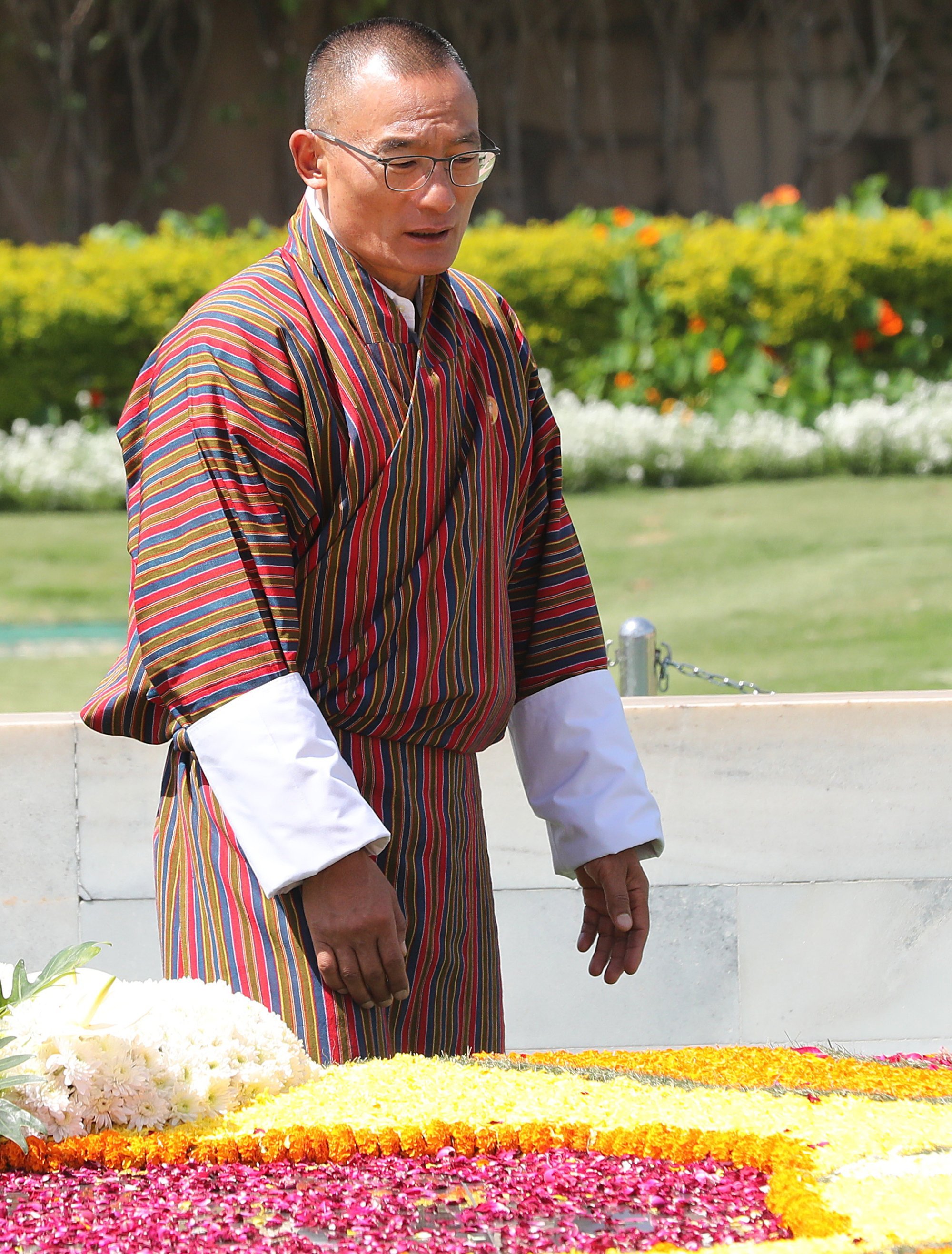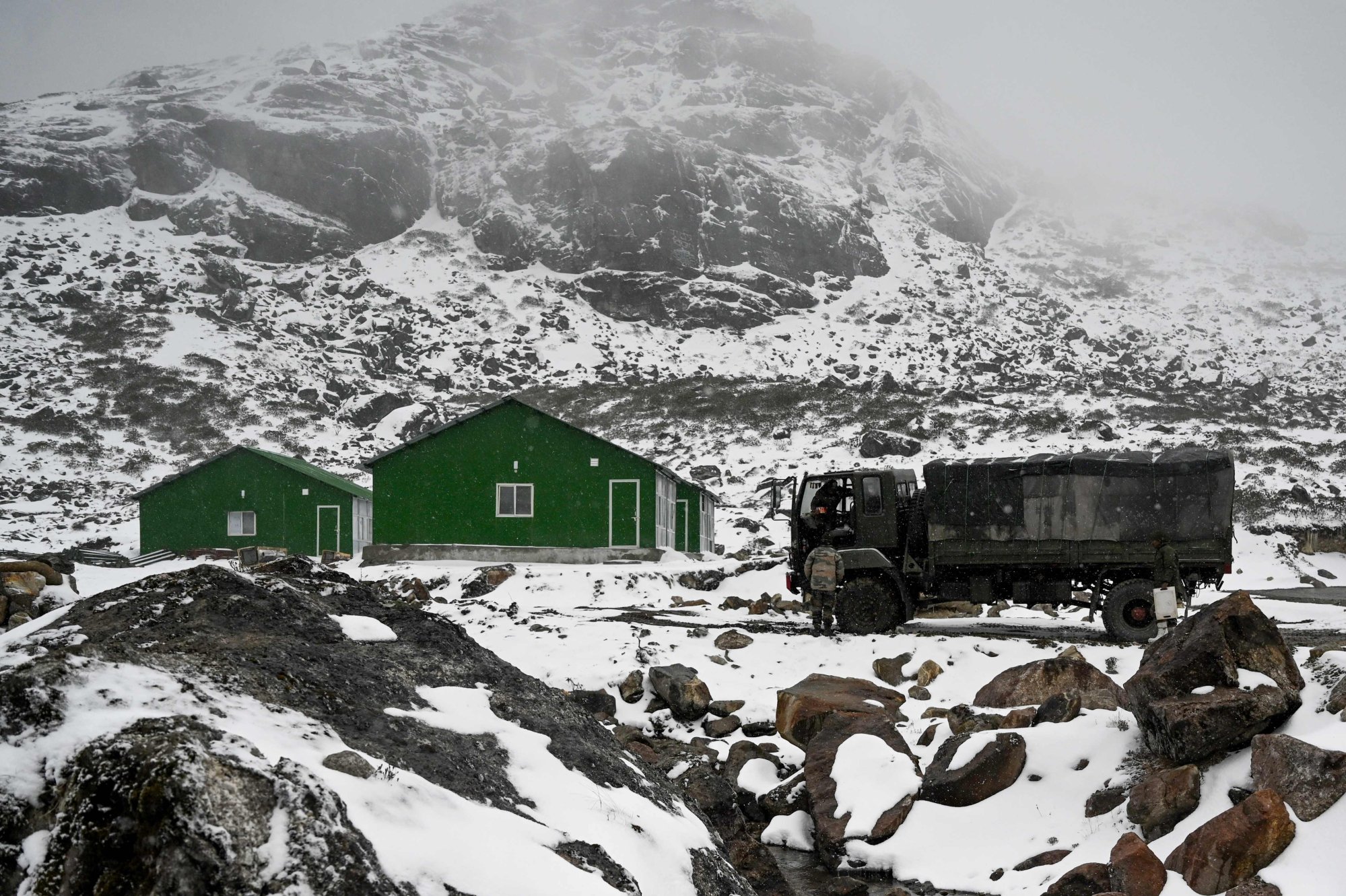
Meetings with India could affect Bhutan’s border talks with China, analysts warn
- Recent reciprocal trips by Indian Prime Minister Narendra Modi and his Bhutanese counterpart, Tshering Tobgay, are said to strengthen ties between the two nations
- But they may disturb negotiations between Beijing and Thimphu concerning long-standing border issues that may involve land swaps
Analysts are warning about potential “obvious and direct” impacts on China’s efforts to resolve its long-running border dispute with Bhutan after India moved to shore up its influence on the Himalayan kingdom.
Last week, Indian Prime Minister Narendra Modi took a break from his re-election campaign and visited neighbouring Bhutan, during which he reaffirmed a partnership that “is not limited to land and water”.
The trip was reciprocal – Bhutanese Prime Minister Tshering Tobgay travelled to New Delhi a week earlier – but it is not common for Indian leaders to visit a foreign country before a general election, which is due to start on April 19.
Tobgay, who returned to power after January’s election having previously served as prime minister from 2013 to 2018, promised to strengthen ties with India, Bhutan’s key trading partner.

But Lin Minwang, deputy director of the Centre for South Asian Studies at Fudan University in Shanghai, said that the impact on Chinese-Bhutan border talks could be “obvious and direct”.
“We have seen some momentum since 2020 and the negotiations have achieved significant progress,” Lin said.
“The two sides are awaiting for an opportunity of breakthrough but now I think there could be some changes.”
It remains unclear how far the border negotiations have advanced. Neither Beijing nor Thimphu have disclosed details.
India-friendly Bhutan walks tightrope as it seeks to end border row with China
But in an interview with The Hindu last year, then-Bhutanese prime minister Lotay Tshering – considered a China-friendly figure – said that the two countries were “inching towards the completion” of a three-step road map on boundary delineation. A land swap involving the Bhutan-controlled Doklam area was among the proposals.
It was not the first time Beijing raised a land swap with Bhutan. In 1996, China proposed a “package deal” to trade Jakarlung and Pasamlung for a smaller tract of disputed area around Doklam, Sinchulumpa and Gieu, but Bhutan backed off. In 1998, the two sides instead signed an agreement to pause negotiations, pending further talks.
Lin said that the territorial disputes between China and Bhutan were “not that big in principle”.
“The core issue is if Bhutan has made up its mind to resolve the disputes – and if it is willing to defy India.”
India has been deeply wary of any land swap, which would give China a strategic advantage in the Doklam plateau. The plateau is close to the Siliguri Corridor a strip of land that is around 20km (14 miles) wide at its narrowest point that connects India’s northeastern states to the rest of the country.
Many in New Delhi worry that such a swap could expand India’s vulnerabilities to China, with the two Asian powers already at loggerheads over their disputed Himalayan borders.

In their recent visits, neither Modi nor Tobgay have publicly discussed the border negotiations, but have signed a number of deals to cooperate on energy and infrastructure.
During his two-day visit in Bhutan, Modi was given what Indian media described as a “unique” welcome, including a private dinner hosted by King Jigme Khesar Namgyel Wangchuck at the Lingkana Palace. He was also the first foreigner to be honoured with the Order of the Druk Gyalpo, or Dragon King, Bhutan’s most prestigious civilian award.
Still, border issues were “clearly in the mind of Indian officials”, said Amit Ranjan, of the National University of Singapore’s South Asian Studies Institute.
Ranjan said that it remained to be seen if the current Bhutan government would change its border-dispute stance, but that recent progress in the talks, and the growing speculations of a developing diplomatic relationship between Beijing and Thimphu, indicated that China’s influence with Bhutan was coming closer to India’s.
“That’s a security concern for India, especially in Doklam,” he said, “and New Delhi may not accept” a land swap deal.
China and India hold further round of border talks
Srikanth Kondapalli, a professor of Chinese studies at Jawaharlal Nehru University in New Delhi, said that Beijing’s recent construction of villages inside the disputed border zone would also draw suspicion from Bhutan and India.
Beijing has said these villages were part of a poverty alleviation plan, but Kondapalli was sceptical.
“Bhutan border and security is linked to Indian security,” he said, “so they need to coordinate.”
There are as yet no signs that Bhutan will dismiss India’s concerns. After Tshering’s comments on a possible land swap with Beijing, there were discussions in India about whether Thimphu was struggling to reach a deal without Delhi’s backing; the former prime minister had to clarify that there was no change in position by Bhutan.
To India’s dismay, while its relation with Beijing has soured since its own 2020 border stand-offs, China has steadily pushed for closer ties with other South Asian nations, including Sri Lanka, the Maldives and Bangladesh, Pakistan and Nepal, hosting their leaders in Beijing and financing a number of infrastructure projects in the region.

